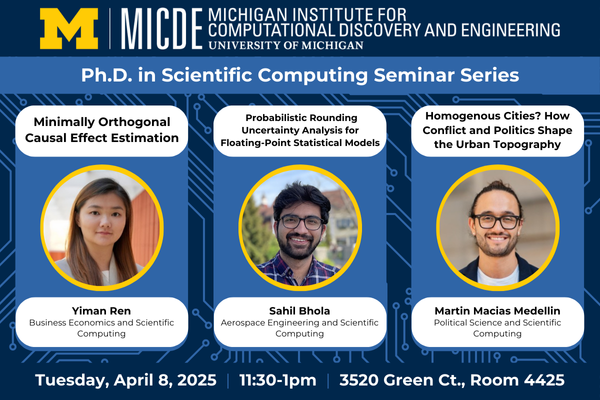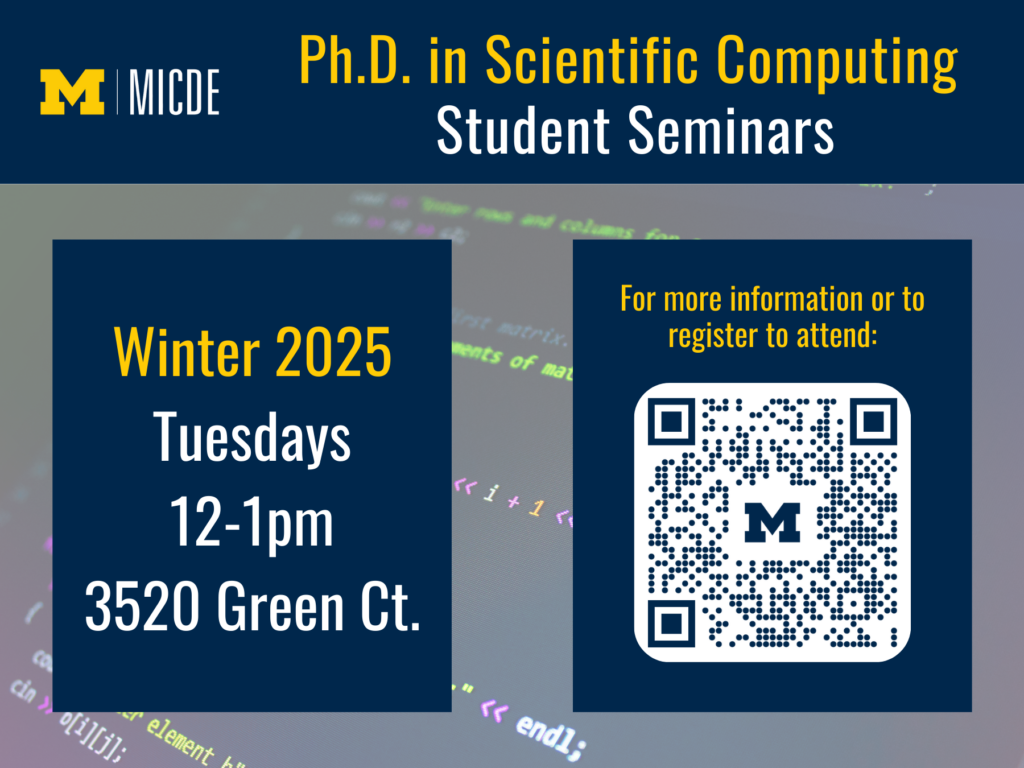Events

- This event has passed.
PhD Seminar: Anna Redgrave and Agnit Mukhopadhyay
March 11, 2021 @ 4:00 pm - 5:00 pm
Venue: Zoom Event
 ANNA REDGRAVE, GRADUATE STUDENT, ECOLOGY AND EVOLUTIONARY BIOLOGY & SCIENTIFIC COMPUTING
ANNA REDGRAVE, GRADUATE STUDENT, ECOLOGY AND EVOLUTIONARY BIOLOGY & SCIENTIFIC COMPUTING
Bio: Anna Redgrave began her science career as an undergrad, master’s student, and lab technician studying developmental biology in zebrafish. She became fascinated by how complicated developmental systems are, and joined the Wittkopp lab at U-M for her PhD to investigate one mechanism of complicating developmental systems: gene duplication.
REGULATORY DIVERGENCE OF DUPLICATED GENES: Gene duplication has long been studied as a mechanism of evolution at the genetic level. Duplicated genes introduce redundant protein-coding sequence, allowing duplicates to acquire novel functions while preserving existing functions. Gene duplication, however, also provides a substrate for non-protein coding, regulatory sequence evolution. Genes are duplicated with varying levels of their native regulatory sequence intact. This prompts the question: how does the degree to which duplication preserves native regulatory sequence affect future evolutionary paths? Here, I investigate this question by comparing the expression profiles of duplicate genes across many environments in two diverging species of yeast.
 AGNIT MUKHOPADHYAY, GRADUATE STUDENT, CLIMATE AND SPACE SCIENCES AND ENGINEERING & SCIENTIFIC COMPUTING
AGNIT MUKHOPADHYAY, GRADUATE STUDENT, CLIMATE AND SPACE SCIENCES AND ENGINEERING & SCIENTIFIC COMPUTING
Bio: Agnit is a NASA Earth & Space Sciences Fellow at the Climate and Space Sciences and Engineering department at the University of Michigan, with a background in Aerospace Engineering. He is co-advised by Drs. Michael Liemohn and Daniel Welling to quantify the nonlinear coupling between the Earth’s atmosphere and it’s near-plasma environment. He loves working with numerical models to assess and predict the impact of extreme natural events on life and technology.
QUANTIFYING THE IMPACT OF THE AURORA ON SPACE WEATHER: Conjuring a captivating vista of a colourful nightsky, the aurora borealis (Northern Lights) and australis (Southern Lights) are a byproduct of upper atmospheric ionization by charged particles (plasma) of solar origin. The near-constant drizzling of auroral plasma particles from outer space are excellent drivers of space weather activity caused by solar disruptions like flares and coronal mass ejections that can adversely affect man-made technology like GPS satellites, electrical power grids and oil pipelines. Using a combination of physics-based models, data regression tools, in-situ satellite and ground-based telemetry, we figure out what forms and drives the aurora, how these drivers modify the aurora’s electro-chemical atmospheric modification, and how this system could be predicted during extreme natural events.
Register via Zoom to immediately receive login information. Note: You may register and join after the event has started.
This event is part of MICDE’s Winter 2021 seminar series featuring Ph.D. students in the Scientific Computing program. This series is open to all. University of Michigan faculty and students interested in computational and data sciences are encouraged to attend.
Questions? Email MICDE-events@umich.edu

